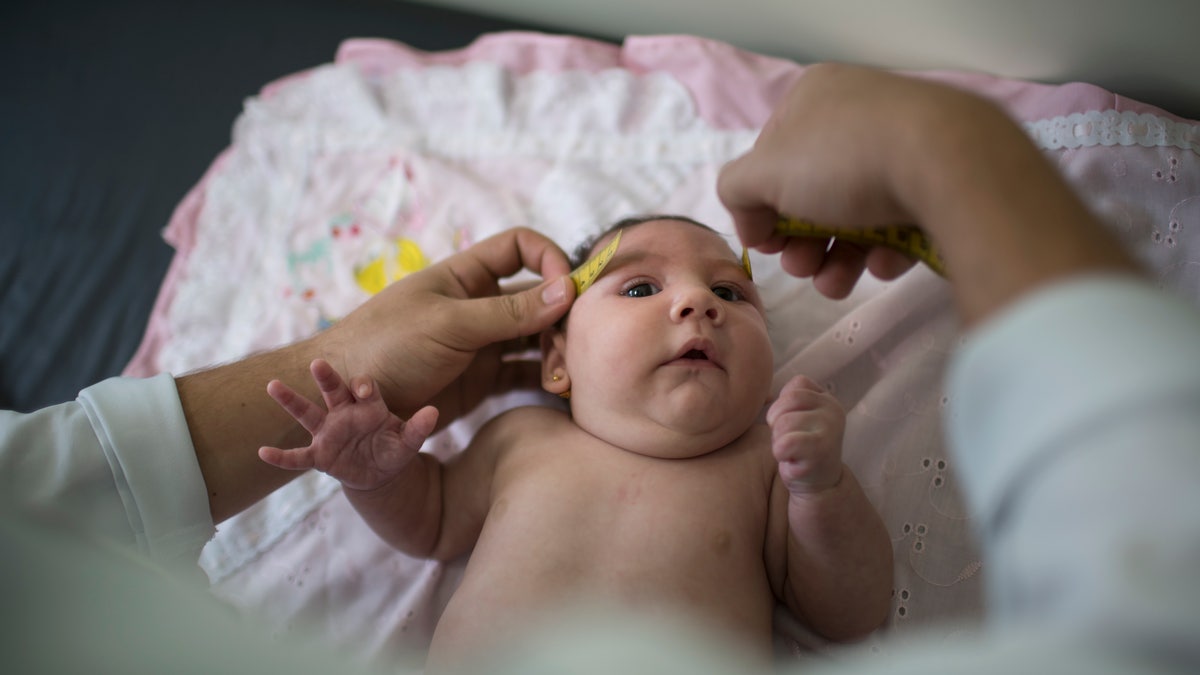
In this Dec. 22, 2015 photo, Luiza has her head measured by a neurologist at the Mestre Vitalino Hospital in Caruaru, Pernambuco state, Brazil. Luiza was born in October with a head that was just 11.4 inches (29 centimeters) in diameter, more than an inch (3 centimeters) below the range defined as healthy by doctors. Her rare condition, known as microcephaly, often results in mental retardation. (AP Photo/Felipe Dana)
MEXICO CITY – There is currently "no justification" for asking Mexican women to postpone getting pregnant because of an outbreak of the mosquito-born virus Zika, a senior Mexican Health Ministry official said on Tuesday.
Zika, which has spread across the Americas, has been linked to brain damage in thousands of babies in Brazil, leading health authorities in Colombia and El Salvador to advise women against getting pregnant for anywhere up to two years.
There are 18 cases of Zika in Mexico, with 13 in the southern state of Chiapas, four in the northern state of Nuevo Leon and one in the western state of Jalisco, said Pablo Kuri, deputy minister for prevention and health promotion.
"In Mexico, right now, there is no justification to tell a woman not to get pregnant when we only have cases in three places," Kuri said in an interview.
"We'll have to see in the future, given the experiences in Central and South America, if these types of recommendations really have any effect. You can tell people not to get pregnant, but that doesn't mean they won't."
Kuri said all 18 people contracted the virus in Mexico, rather than catching it abroad and traveling to Mexico.
But he said the many migrants traveling north to the United States from Central America, and particularly El Salvador, which has been badly hit by the outbreak, could add to the Zika tally in Mexico.
Given the paucity of cases, he said that "the risk of coming to Mexico is extremely low," as many parts of the country, including Mexico City, had such high elevations that the low-lying Zika mosquito could not strike there.
On Monday, the World Health Organization predicted the virus would spread to all countries across the Americas except for Canada and Chile.
There is currently no vaccine for Zika. The Sao Paulo-based Butantan Institute is leading research on Zika and says it plans to develop a vaccine "in record time," although its director warned that was still likely to take three to five years.
Kuri was skeptical about those claims.
"The development of the dengue vaccine took various decades," he said. "A vaccine is no trivial thing. You can't just make it in someone's garden."




















